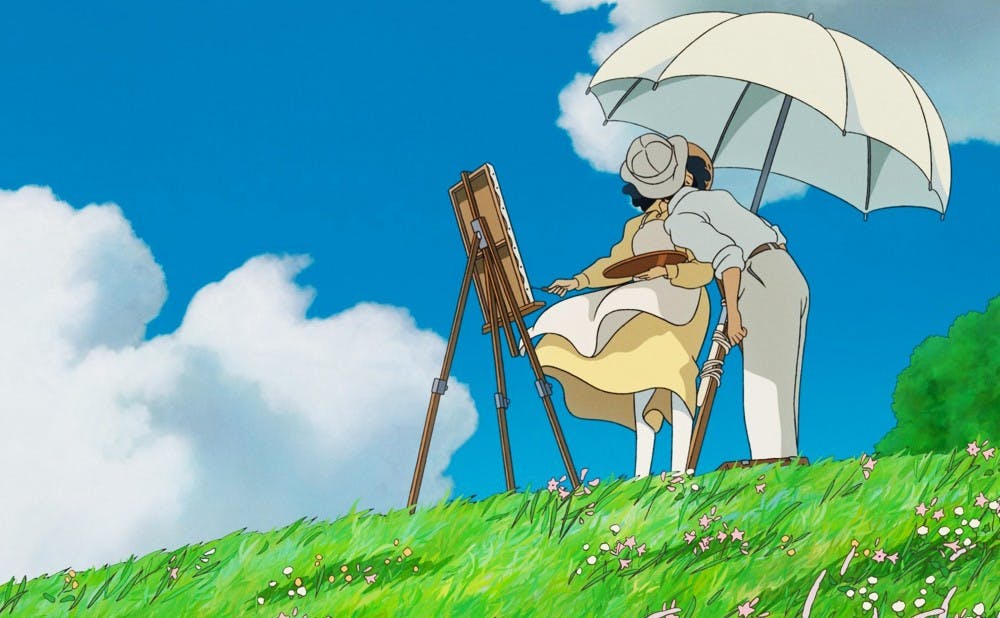Dir. Hayao Miyazaki
Studio Ghibli
4.5/5 stars
The place where I watched Hayao Miyazaki’s swan song, “The Wind Rises,” was perfect. It was a Monday night showing in a theater fitted with dark gold curtains and velvet chairs, an audience of about a dozen regulars and an excited introduction by one of the theater’s employees. The whole place had a sort of anachronistic charm, eliciting a muted, dusty sense of nostalgia and earnestness.
That’s precisely where we find the bittersweet “The Wind Rises.” It’s different from Miyazaki’s other critically-acclaimed films. The style is the same, with watercolor clouds, strikingly detailed facial expressions and painstakingly hand-drawn animations. Individual scenes and dialogue still move at a real-life pace, and the story is still carried not only by the characters that we meet, but also by the pulsing sensation of something more. But there are no spirits or demons, no curses or spells. We don’t get much of an ending or a moral to this fable, which was loosely based on Tatsuo Hori’s 1937 story. Rather, we get a real-life glimpse into some affecting truth as we meet Jiro Horikoshi, a good soul who wears circle-framed glasses, dreams of designing beautiful airplanes as a child and becomes an esteemed aeronautical engineer in the time of World War II.
The surreal or fantastical parts of the film are reserved for Jiro’s dreams, where his hero, the Italian engineer Caproni, guides him. We watch as Jiro grows up to help reinvent Mitsubishi’s warplanes; Japan is decades behind at this time, stuck with wood and canvas aircraft, a stark contrast to Germany’s enormous, all-metal bombers. Jiro immerses himself in his work, hoping to one day, after the war, design a beautiful plane to carry people.
The film is long and rich. There’s a young Jiro with his sister, squinting up at the stars from their rooftop. We see Jiro through friendship, travel, failure and romance. Throughout, we, like Jiro, are reminded of something more. Japan is in turmoil, struggling through an earthquake, a war, a failing economy. A German man who Jiro meets at a summer resort whispers his criticisms of Hitler and then abruptly flees arrest. More than once, characters remark on the war and Japan’s part in it, always coming to the same eerie, haunting conclusion: “Japan will burn.” And finally is the epigraph and overarching theme of the film by poet Paul Valéry: Le vent se lève!...Il faut tenter de vivre! or, The wind is rising. We must attempt to live.
This is a tale of longing and hope with commentary inextricably tied to Miyazaki himself. Several threads weave throughout: the horrors and morals of battle, Japan’s place in history and the world, the pain of needing to create. Jiro has to balance his duty to his work and to those he loves. He struggles as he dreams of bird-like planes flying through lush skies, so different from those that will almost certainly crash and burn as relics of war’s destruction. Miyazaki dazzles us, but even more, he grips us with characters who are painfully relatable, a soundtrack that simultaneously soars and deeply saddens, a bitter truth. I can’t help but be reminded of another excerpt from the same Valéry poem:
In the eyes of those lovers of perfection, a work is never finished—a word that for them has no sense—but abandoned; and this abandonment, whether to the flames or to the public (and which is the result of weariness or an obligation to deliver) is a kind of an accident to them, like the breaking off of a reflection, which fatigue, irritation, or something similar has made worthless.
This is a film that at once confronts our unstoppable corruption of beauty and follows the long, desperate efforts of those who try to restore, or to rediscover, that beauty. Yet—and maybe he just couldn’t bring himself to do otherwise—Miyazaki still gives us some hope to clutch onto at the end, a feeling that, maybe, Jiro will finally get to create the planes he’d always dreamed of.
Get The Chronicle straight to your inbox
Signup for our weekly newsletter. Cancel at any time.

